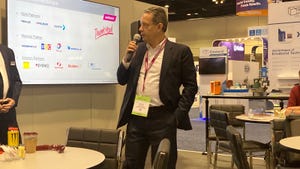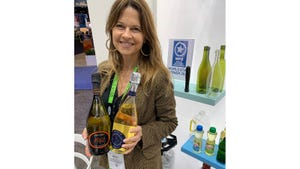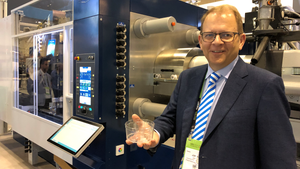Spending money to control costs
May 1, 1997
Since February 1994, IMM has kept its eye on Broadview Injection Molding Co. Inc. (Broadview, IL), a thermoplastics and thermoset custom molder known for its precision-molded and assembled bobbins and coil forms. The company had then held its prices for 10 years in a row. In our last look, we found that it raised its thermoset piece prices slightly, having hit a cycle-time reduction ceiling (see May 1995 IMM, p. 10). We recently checked in again. Michael L. Hetzel, Broadview's president and CEO, tells us that the thermoset prices have held. Meanwhile, prices for his thermoplastic parts remain unchanged, as for the past 13 years.
Hetzel has made investments in three key areas to keep a hold on prices while expanding capacity to meet growing demand and pursuing UL recognition: he's purchasing imaging systems for mold protection, has invested more heavily in employee training, and has begun to outsource cost-effective offshore molds for certain jobs. In other words, he's spending money to control costs.
Hetzel has purchased 10 SafetyCycle II imaging systems from Avalon Imaging (Boulder, CO) for 10 of his 26 Battenfeld molding machines. The total investment will be $250,000. Hetzel is planning to install units on every one of his machines that presently use operator monitoring.
Installation of 10 Avalon mold protection systems has freed up labor costs at Broadview, as well as freeing up access space around its Battenfeld molding machines. Now one operator can monitor five machines, instead of just one. |
|
"Many of our products have multiple slides and are prone to damage, but why should an operator have to watch parts fall?" asks Hetzel. "Mold damage was prevented with one operator at each machine, but now one operator can run five presses. And imaging is proving to be more reliable, since human error is eliminated." In addition to freeing up labor utilization costs (Broadview employed 118 in 1994 and employs 100 now), this kind of monitoring has freed up floorspace around the machines because it eliminates the need for beside-the-press operator workstations.
Hetzel feels quality will increase, partly because of the better machine access. Quality, he reminds us, is an important cost-control factor in today's global marketplace. For eight years in a row, Broadview has maintained a reject rate averaging around 369 parts/million for all of the 100+ million parts it produces each year for its domestic and foreign customers.
"I believe this is Avalon's first application in thermoset molding," he explains. "We're working together to explore the impact of high-temperature thermoset molds on the systems' cameras. The molds we're experimenting with run at 340F." Broadview uses two cameras in its imaged cells that have larger molds to "regionalize" the mold, thereby ensuring finer resolution.
Hetzel and Peter R. Nechvatal, a teacher and now Broadview's operations manager, still believe that craftsmanship is the real key to controlling costs. Broadview's management has created a training and communications program with its employees to support craftsmanship, rather than investing in QA systems to compensate for the lack of same. Responsibility and accountability are put into the hands of each person. QA keeps score. To this end, Broadview has refined its training methods, and it has also roughly doubled the number of trainers it has per shift.
"We refuse to lower our standards," Hetzel says. Training has been refined to include what he calls the "basics" - not just basics like arithmetic, but basics like why people should show up for work. "The number one problem we face is finding qualified, trainable workers. The revolving door in this business may largely be the result of poor morale. Existing workers can become disheartened by working alongside the lower levels of competence and work ethics found in many new employees. In interviews, when we spot 'job-hoppers,' we try to determine why they've become one."
Finally, Broadview has entered into a strategic alliance with an Asian moldmaker Hetzel declines to identify. Broadview used to build molds in-house, but is now focusing capitalization and recapitalization in the production area, while farming out tool building domestically and offshore. With either source, it creates the design of all the molds it farms out. "Our customers now have the choice of availing themselves either of the advantages of domestic tool building logistics, such as speed, or the lower cost of the very same molds built in Asia," explains Hetzel. "The results of this new sales approach have been fantastic. We've experienced a significant improvement in our hit rate. And we have begun to expand into new markets requiring our precision molding and assembly expertise, like computer components and ignition coils for small motors."
What's the reaction been among Broadview's domestic mold suppliers? "Although not delighted, they acknowledge that you don't see the jobs you lose anyway," says Hetzel. "It's provided a net improvement in all our business relationships. We're not the cheapest molder when it comes to piece prices, but we were missing bids because of our tooling prices. Now, we can continue to grow, and thereby bring more business to our domestic mold suppliers, as well as to our new offshore partner." Will Broadview continue to hold its prices? Time will tell.
You May Also Like



